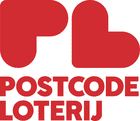July 9, 2025
Breaking the silence: amplifying survivors’ voices for addressing conflict-related sexual violence in Myanmar
On 19 June 2025, the Mukwege Foundation, in collaboration with the Embassy of the Netherlands in Thailand, organised an event in Bangkok to coincide with the International Day for the Elimination of Sexual Violence in Conflict. The meeting brought together survivors and civil society organisations working to address conflict-related sexual violence (CRSV) in Myanmar, providing a space for dialogue, exchange and joint action.
The event opened with a panel discussion moderated by Katrien Coppens, Executive Director of the Mukwege Foundation; Sylvia Acan, SEMA member and Director of Global Women Vision Uganda; Antonia Mulvey, Executive Director of Legal Action Worldwide; Moon Nay Li from the Women’s League of Burma; Debbie Stothard from ALTSEAN-Burma; and Cho from Survivors United for Rights and Justice.
The panellists addressed the rising cases of CRSV in Myanmar post-coup, the additional challenges faced by survivors living as refugees in neighbouring countries, including Thailand, and the transformational power of survivor-led initiatives in responding to CRSV.
Read more about survivors’ voices, the challenges and the call to action that emerged from Bangkok.
Navigating the challenging path to justice
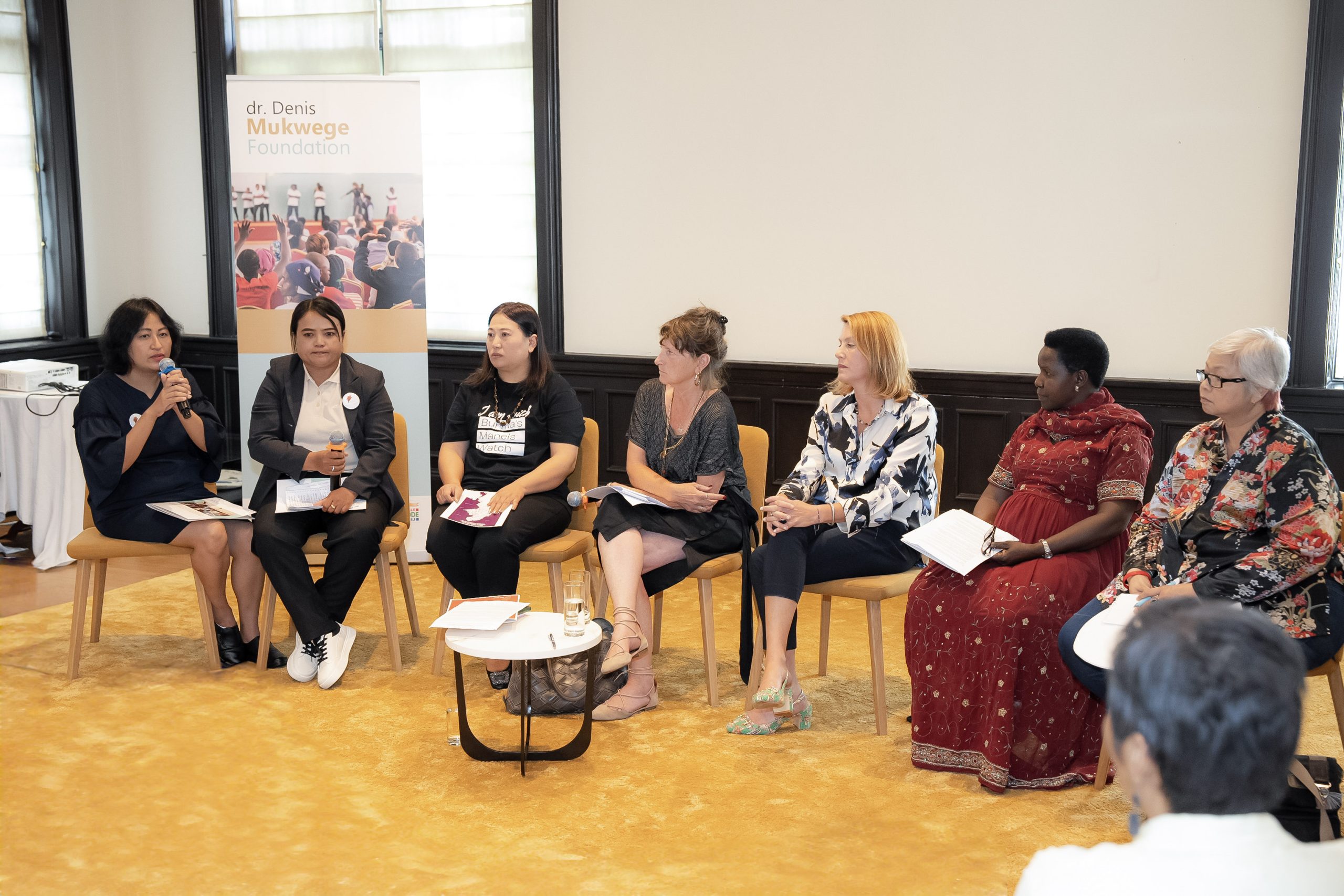
The Women’s League of Burma (WLB), a network of 12 women’s organisations, stands at the forefront of efforts to address the growing crisis of conflict-related sexual violence and gender-based violence in Myanmar.
Since the military coup in 2021, WLB has documented over 900 cases of brutal human rights violations – including torture, gang rape and other forms of sexual violence – signalling an alarming rise in both the scale and severity of these crimes.
Through its meticulous documentation work, WLB has uncovered that the situation for women and girls is deteriorating rapidly. Despite the scale of these violations, access to justice remains virtually impossible. Survivors face not only institutional neglect but also active intimidation.
“The justice system does not listen to survivors, and no one takes legal action,” says Moon from WLB. “Even the police are afraid of the military.”
Survivors often live under constant threat, silenced by fear and isolated from protection. Perpetrators act with impunity in a system where accountability is absent and the rule of law has collapsed. In this context of systematic injustice and impunity, amplifying survivors’ voices at the international level becomes more critical than ever.
Antonia Mulvey emphasised the importance of survivors’ participation, citing major legal efforts such as the ICC and ICJ cases on Myanmar, and the critical role of survivors’ voices in driving accountability. She stressed that survivors are not just witnesses but key agents of justice, stating: “If survivors have the courage to speak out, we have the responsibility to act.”
As part of the discussion, participants watched a video from Usila, a Rohingya survivor network. The group issued a powerful collective call to the international community: to stand up for survivors’ rights, offer meaningful support and actively build a future where no one endures such violence and persecution again.
Building on this, Debbie Stothard emphasised that justice efforts must go hand in hand with ensuring the immediate survival and protection of survivors. She emphasised that safeguarding survivors must be the top priority, noting that many remain in danger – particularly when displaced across borders.
She explained that survivors who flee to neighbouring countries often face further victimisation: they are criminalised, detained and denied access to essential services due to the lack of legal status. Supporting their legal recognition and guaranteeing access to care, protection and basic rights in host countries, she argued, are fundamental preconditions for justice.
She concluded:
“We must look at the whole picture, solidarity with survivors needs to be 360° — it’s not just about giving money; it’s about ensuring they can survive, be safe and seek justice.”
Voices of courage: survivors leading the way to justice and healing
Marking a significant milestone, a survivor from Myanmar bravely spoke on the panel and shared her powerful journey – beginning with her activism in Myanmar and leading to her involvement with the survivor network Survivors United for Rights and Justice (SURJ) in northern Thailand.
She explained that she joined the network to help restore survivors’ dignity and build a safe, supportive community for women like her.
“I want to change the situation for these women and restore their dignity. The network provides a safe space, and I’m grateful to be a part of it,” she said.
Survivors United for Rights and Justice (SURJ) was founded in direct response to the needs, priorities and aspirations expressed by survivors during consultations conducted by the Mukwege Foundation with 118 survivors across Bangladesh, Thailand, Myanmar and India between March 2023 and December 2024. These consultations also resulted in the report In their own words: survivors’ perspectives on conflict-related sexual violence in Myanmar and across borders, which was launched on the same day.
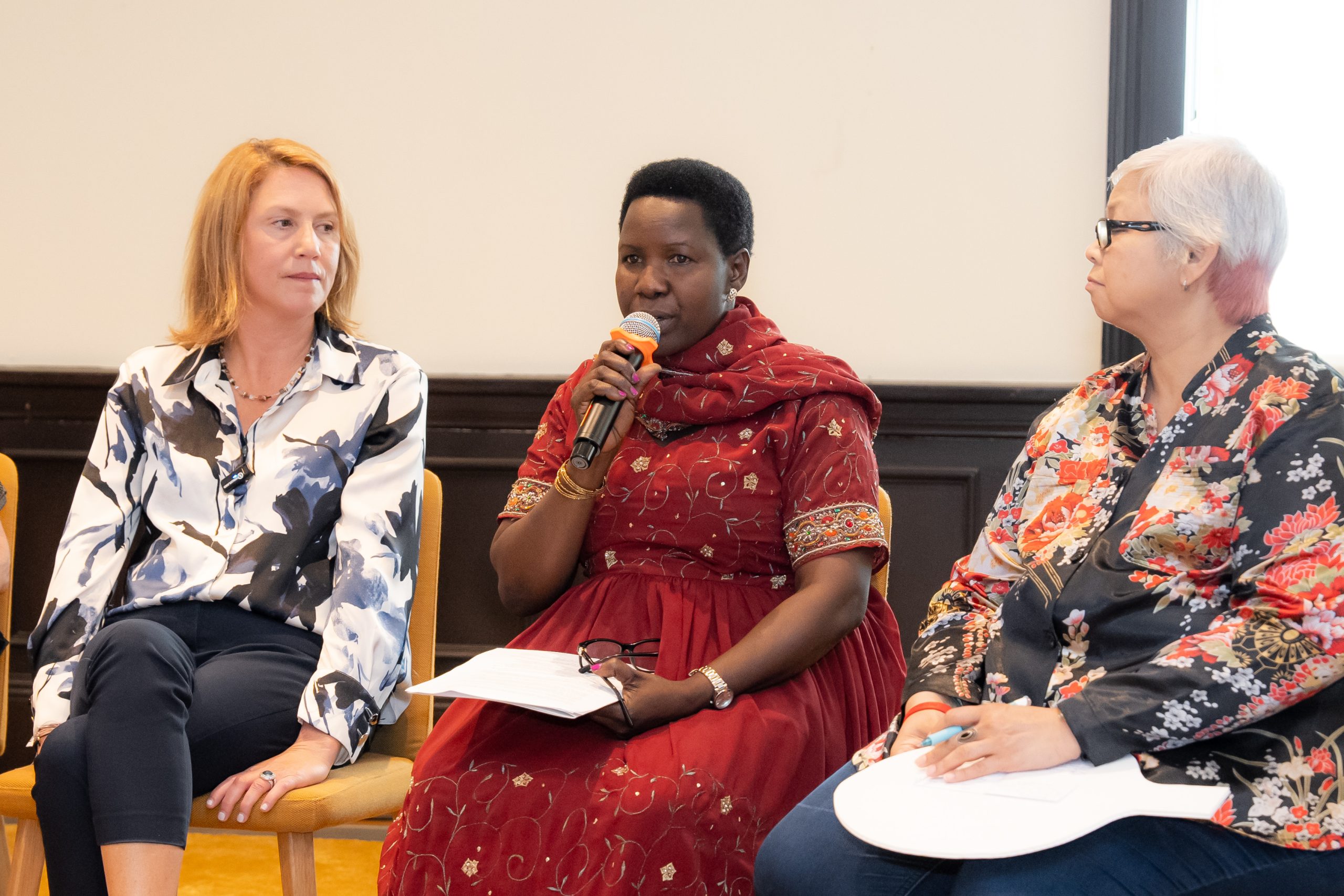
During the panel discussion, Sylvia Acan shared her personal experience with SEMA, which she described as her second home. The network has provided her with invaluable tools and healing moments through connections with others. With members from around 27 countries, SEMA offers survivors the opportunity to speak not only for themselves but also for those whose voices remain unheard.
“People gain courage and feel strong when they join SEMA,” she said. “It taught me that peace begins with me.”
The panel emphasised that survivor involvement in initiatives that concern them not only contributes to healing but is also essential for real change. It is personal, urgent and builds trust more effectively than any external intervention.
Key takeaways
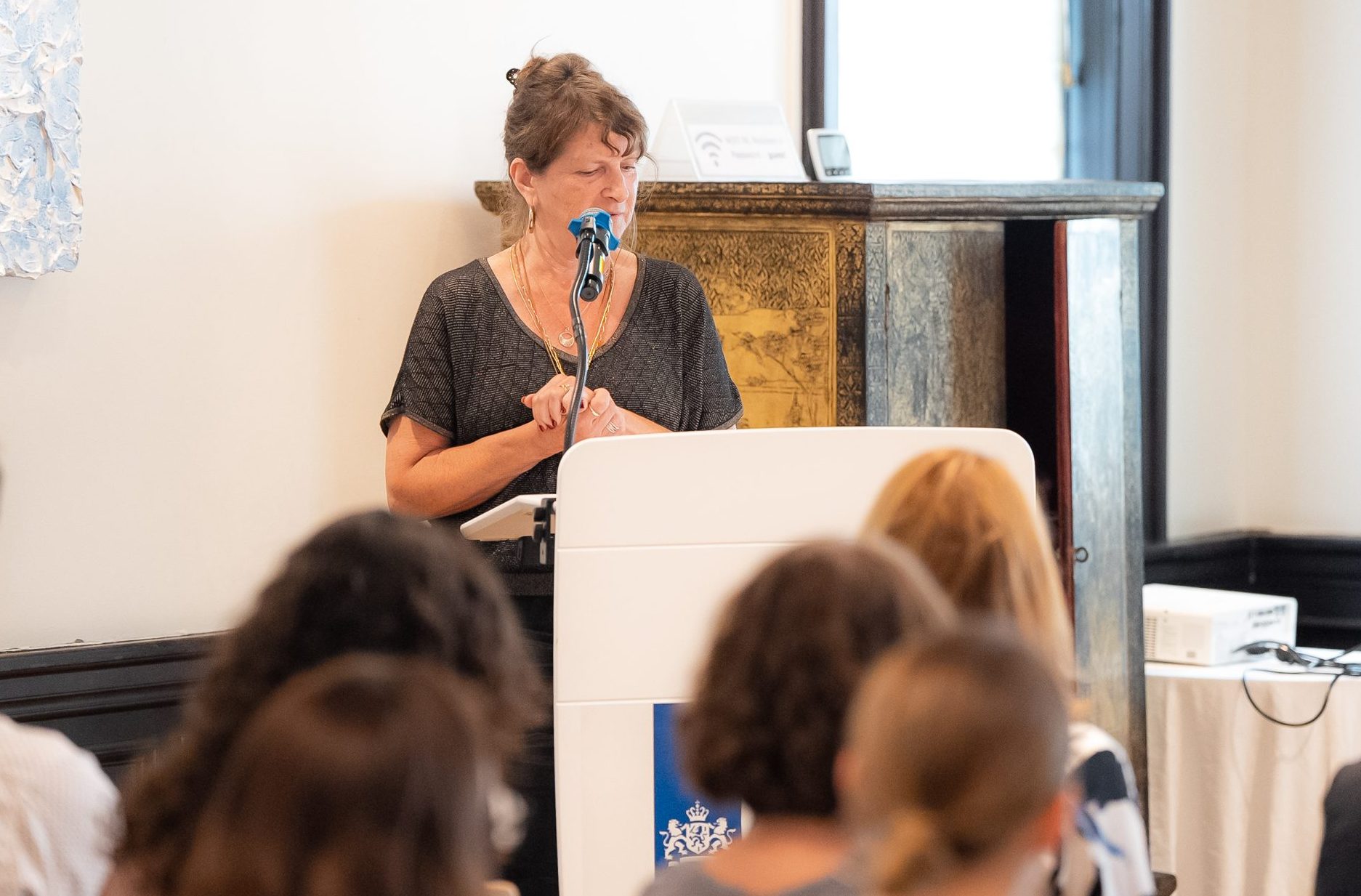
Katrien Coppens, Executive Director of the Mukwege Foundation, concluded with the following recommendations based on the discussions:
- Ensure safe access to comprehensive medical care
Survivors must have safe access to full medical care for physical injuries, along with long-term mental health support. Care providers should be properly trained in trauma-informed approaches and cultural sensitivity. - Promote peer-to-peer support and survivor movements
Peer support networks and survivor-led movements are crucial in breaking the silence surrounding sexual violence and overcoming associated stigma. - Facilitate socio-economic reintegration
Survivors should have access to socio-economic assistance and income-generating opportunities to support their reintegration and independence. - Secure legal status for refugees
It is vital to ensure that refugees are granted legal status to prevent forced returns and protect them from further risks, including sexual violence and exploitation. - Involve survivors in justice, reparations, and stigma reduction
Survivors must be actively engaged in processes related to justice, reparations, and in leading efforts within their communities to combat stigma, with consistent and dedicated support for these initiatives. - Guarantee survivor participation in decision-making
Survivors should be actively involved in all decisions that affect their lives, policies, and services intended for their benefit. - Provide sustainable, timely, and flexible support to survivor movements
Continued, adaptable, and adequately resourced support is essential for the sustainability and growth of survivor-led movements.
After the panel: the inspiring story of Devi Khadka
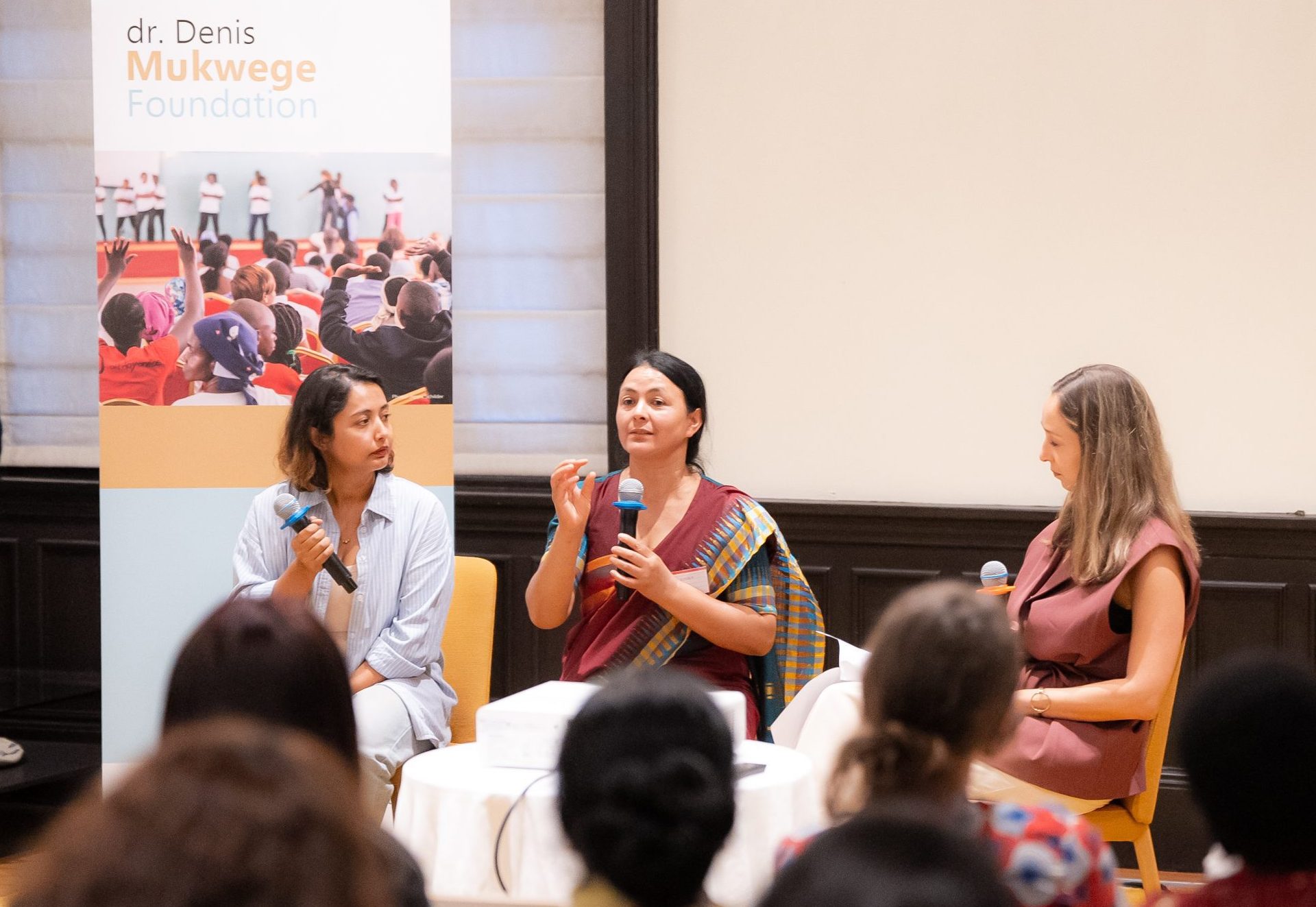
“Watching Devi’s story gave us strength. It showed us that if we come together, we can fight for justice,” Survivor from Myanmar.
Following the panel discussion, the audience was invited to watch Devi, a powerful documentary featuring Devi Khadka, a SEMA member from Nepal — a rebel warrior, a mother and a survivor of sexual violence.
The film highlighted her grassroots activism in Nepal, showcasing her efforts in collecting thousands of testimonies to demand recognition and justice for CRSV survivors from Nepal’s Civil War that ended almost two decades ago. It also intimately captured her personal journey of confronting trauma and challenging a society where those in power attempt to erase rape from wars’ history.
Through her story, Devi’s voice not only deeply moved the audience but also served as a powerful reminder to other survivors of the strength found in solidarity and the importance of standing together.
Standing in solidarity
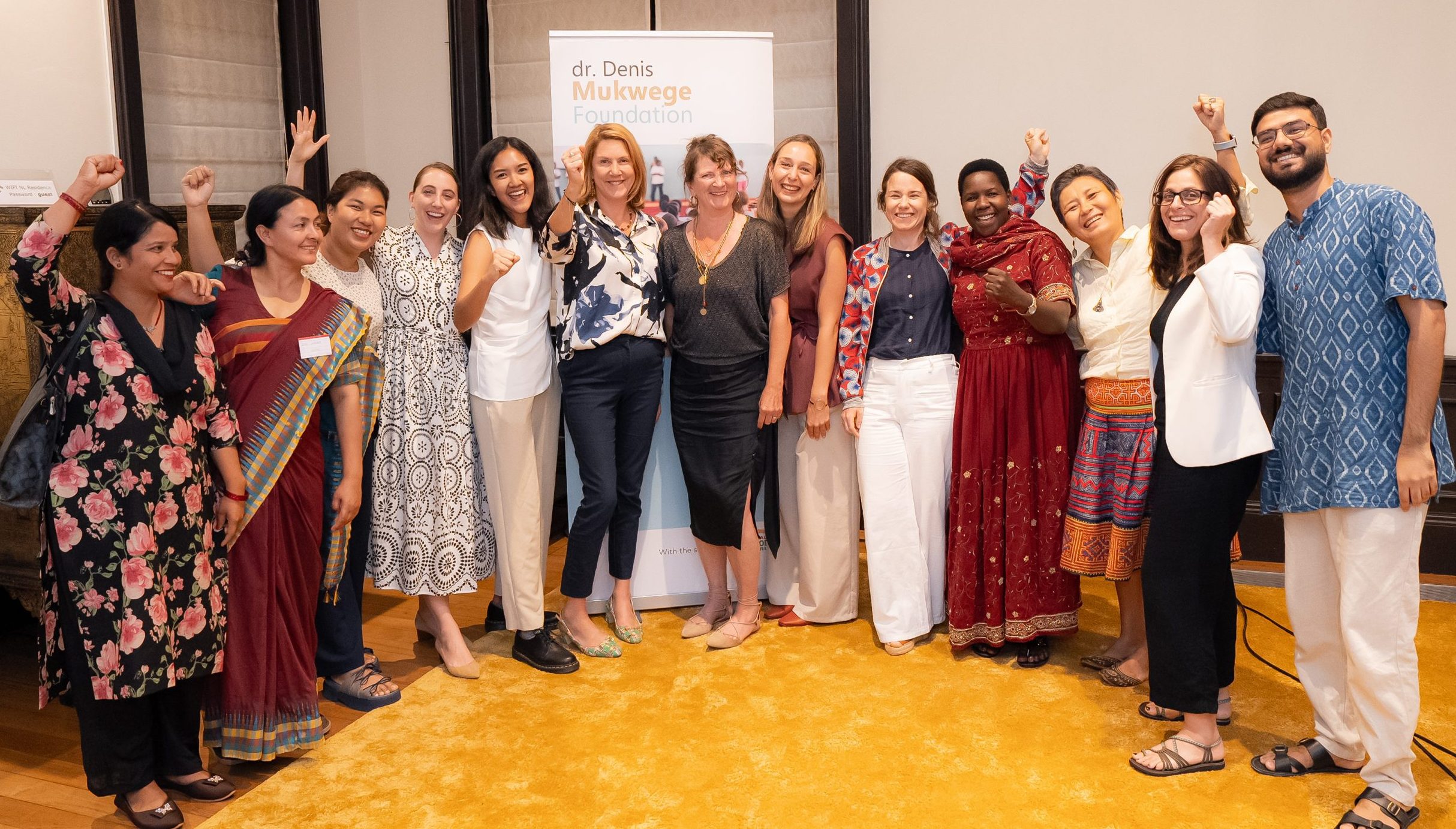
Together, the stories shared during the event highlighted a powerful call to action: that responses to CRSV must be survivor-centred, holistic, cross-border and built on genuine solidarity that goes beyond financial aid to include protection, empowerment and systemic change.
By creating spaces where survivors can share their stories, connect with others and advocate for justice, we can continue to break the silence and build pathways towards healing and accountability.
Thank you
This event was made possible through the support of the Embassy of the Netherlands in Bangkok, Thailand, with the valuable participation of Legal Action Worldwide, ALTSEAN-Burma, the Women’s League of Burma, Survivors United for Rights and Justice, SEMA Global Network of Victims and Survivors to End Wartime Sexual Violence and the Alliance Against CRSV Myanmar.






